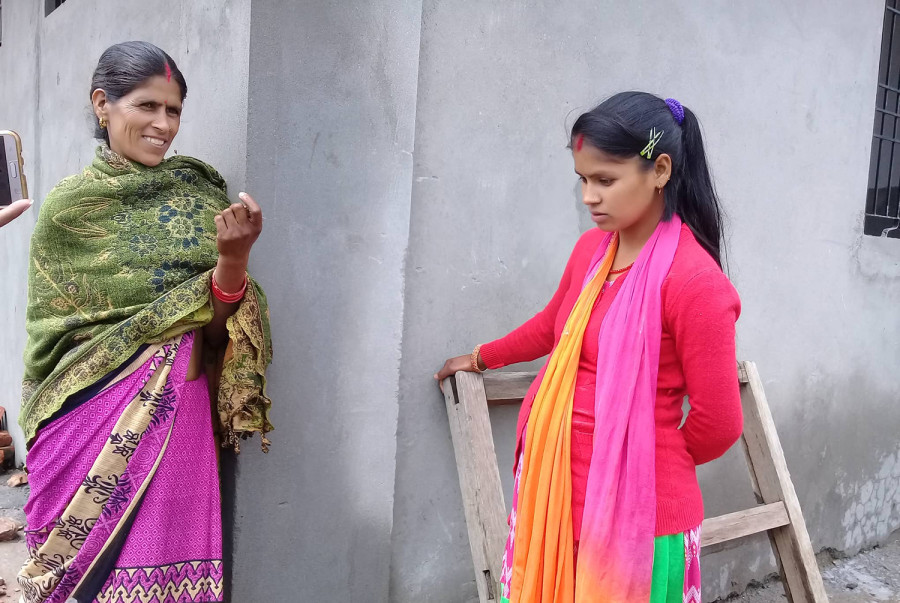Sudurpaschim Province
Child marriage still prevalent in areas declared child friendly in Sudurpaschim
Fourteen girls under the age of 20 became mothers in the area in the last three years, health workers say.
Tripti Shahi
Wards 8 and 9 of Patan Municipality in Baitadi district were declared child-friendly zones three years ago. The local authorities had made the declaration in the presence of the then Minister for Local Development Hitraj Pandeya and former State Minister of Finance Damodar Bhandari, making it the first child-friendly zone of what is now Sudurpaschim Province.
However, going against the spirit of the declaration, the wards—then known as Siddheshwor Village Development Committee—remain an area where child marriage is the norm.
According to the data of Siddheshwor Health Post, 14 girls under the age of 20 became mothers in the area in the last three years. The data shows four teenage girls gave birth in the fiscal year 2016-17, three in the year 2017-18 and seven in the fiscal year 2018-19.
“The rate of underage pregnancies in the area could be higher, as most married young girls do not come to the health post for pregnancy-related tests,” said Laxmi Bhatta, an auxiliary nurse midwife.
Dilliraman Joshi, family planning supervisor of the Health Office in Baitadi, said that people in rural areas traditionally marry early and raise families at a young age.
“Even though this is a child-friendly zone, as declared by the authorities, child marriage and underage pregnancy are widely prevalent. Traditional approach to life trumps practical approach in most rural areas,” Joshi said.
At a recent reproductive health camp organised in the municipality by Siddheshwor Health Post, health workers came across at least seven teenage pregnancy cases.
“Fifty pregnant women from Wards 8, 9 and 10 had undergone ultrasound tests in the camp. Among them, seven were still in their teens and 12 of them had just turned 20,” said Joshi.
Prithviraj Panta, ward chairman of Patan Municipality-8, said the prevalence of early marriage and teen pregnancy in the area is a matter of grave concern for him.
“Siddheshwor was declared a child-friendly zone, which means every child has the right to grow up in a conducive and learning environment. But people here are still marrying off their children before the age of 20. It is a huge challenge for us to stop child marriage in the area,” said Panta.
According to Saraswati Koli, the deputy mayor of Patan Municipality, they have been making various efforts to curb child marriages in the municipality.
“We have been organising various awareness programmes to underscore the evils of child marriage and the repucussions of early pregnancy, but we have a lot to achieve on this regard,” said Koli.
Although Nepal abolished child marriage in 1963, the practice is still rampant in most rural areas of the country, with human rights activists blaming the government for failing to take sufficient steps to end the practice. The minimum age of marriage for both women and men is 20 under the country’s law.



 13.12°C Kathmandu
13.12°C Kathmandu















